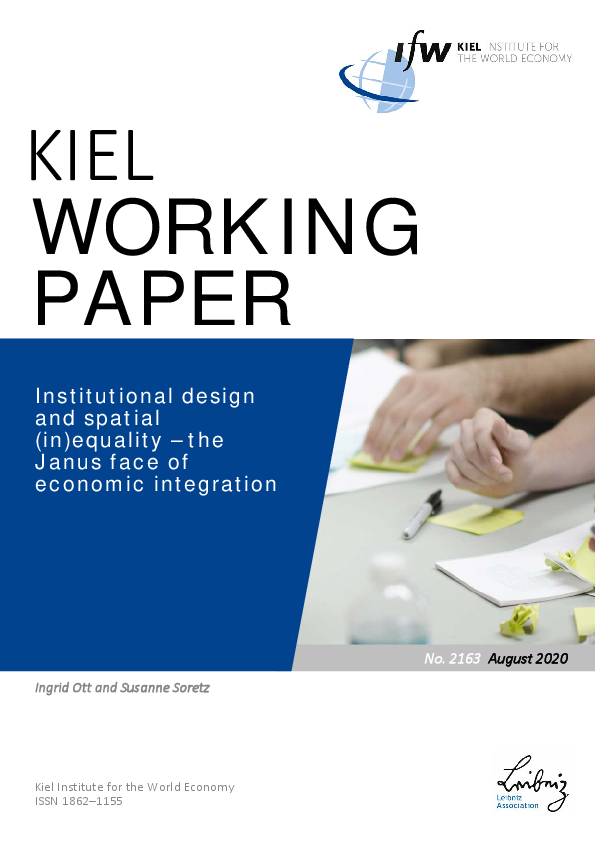Working Paper
Institutional design and spatial (in)equality – the Janus face of economic integration
Authors
Publication Date
JEL Classification
Key Words
Related Topics
Germany
Growth
Sustainable Development
This paper analyzes within a spatial endogenous growth setting the impact of public policy coordination on agglomeration. Governments in each of the two symmetric regions provide a local public input that becomes globally effective due to integration. Micro-foundation of governmental behavior is based on three different coordination schemes: autarky, full or partial coordination. Scale effects act as agglomeration force and in addition to private capital agglomeration increase the concentration of the public input. Integration promotes dispersion forces with respect to the distribution of physical capital which are based on decreasing private returns. However, within the governments’ decision on the concentration of the public input, increasing integration reinforces agglomeration because it promotes the interregional productive use of the public input. Taking feedback effects between the private and the public sector into account leads to mutual reinforcement, hence agglomeration forces almost always dominate and the spreading equilibrium becomes unstable. If convergence is a separate (additional) political objective, it needs sustained additional political effort.






